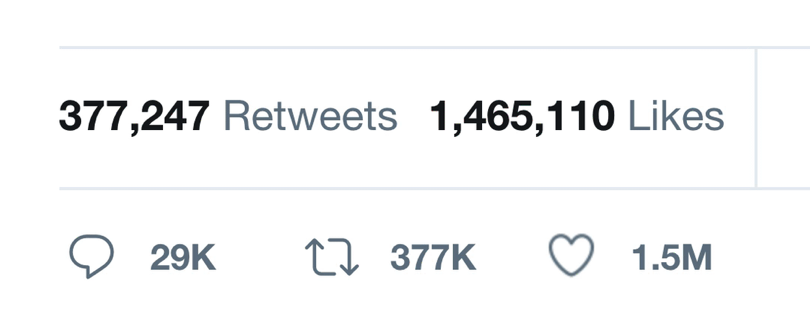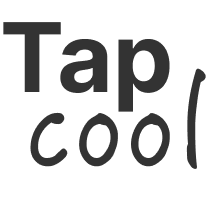A year focused on privacy, streaming, and sonic branding introduced a slew of new buzzwords
A recent survey of 100 marketers conducted at last month’s “Technology for Marketing” trade show in London identified the top 10 buzzwords that marketers find the most annoying. These words won’t surprise anyone — as they’ve been misused, overused, and rendered mostly meaningless over the years. Here they are, courtesy of the MarTechSeries website:
1. Synergy
2. Disruption
3. Paradigm shift
4. Low-hanging fruit
5. Snack-able content
6. Actionable
7. Ecosystem
8. Growth hacking
9. Advertainment
10. SoLoMo (Social, Local, Mobile)
While you might want to stash those terms into your mental cupboard and never take them out again, there are newer, buzz-worthier phrases that won the Internet this year. Here are our buzziest marketing phrases for 2019:
1. De-metrication
Social media looked in the mirror this year and didn’t like what it saw. The self-reflection re-invigorated a long germinating idea called “de-metrication”, which started as a hack that Benjamin Grosser introduced in 2012, when he created browser extensions and workarounds to remove social media statistics from channels like Facebook and Twitter. Perhaps in 2019 all those likes, follows, favorites, retweets, etc., are creating an entirely new, dysfunctional culture where social media alters human behavior for the worse in our never-ending quest for affirmation? At least that’s what all the buzz suggests.

In 2019, marketers started contemplating a world without social media statistics.
Learn More:
https://www.wired.com/story/experiment-social-media-demtricators/
https://www.wsj.com/articles/should-instagram-get-rid-of-likes-11564071289
Use it in a sentence: “Will the de-metrication of our social platform help or hurt advertising revenue?”
2. Dark Social
As Mark Zuckerberg likes to say, “the future is private”. The growing dark social trend has consumers moving en masse to private messaging apps and away from social media feeds. New apps like Threads are empowering uses to selectively share with people and to share their current locations. Creating two social accounts – one for everyone else and one for “real” friends” with whom you share your drunk weekend stories – is another trendy approach to dark social.
Learn More
https://www.disruptiveadvertising.com/social-media/dark-social/
Use it in a sentence: “We’ve lost eyeballs on our primary social media channel because of the rise of Dark Social channels.”
3. OTT / SVOD / AVOD
Breathless articles about the Streaming Wars cross the newswire on a weekly basis, and 2019 marked a watershed moment for OTT (Over-the-Top), which is the delivery of television shows
and films over the Internet as a means to skirt the outdated cable model. Its impact was punctuated by Disney and Apple’s decision to join the war. To further complicate things, AVOD (Ad-Supported Video on Demand) upstarts like Pluto TV and Tubi TV are enjoying higher profiles, joining “old guard” options like Sling TV and Sony’s moribund Crackle. Most consumers already know about SVOD (Subscription Video on Demand), where HULU, Netflix, and Amazon Prime Video enjoy first-mover advantage.
Learn More:
Use it in a sentence: “Nothing shook up the ad industry like the parabolic growth of OTT”

Ad-supported video on demand from Tubi TV is a streaming alternative
4. CDP
The biggest buzz in the modern mar-tech stack is about the CDP (Customer Data Platform), which aggregates and analyzes a company’s first party data to inform marketing tactics, particularly around personalized messaging and specialized offers. The rise of the CDP contrasts the challenges of the DMP (Data Management Platforms), where limitations placed on web tracking through cookies, new data and privacy regulations, and the dominance of walled gardens like Apple and Amazon, make DMPs less valuable today than they may have been in past.
Learn More:
Use it in a sentence: “If we map our CDP and DMP data together we’ll have a better chance at identity resolution.”
5. DTC
You couldn’t turn your head without encountering an article or conference about the importance of running, or learning from, a hot “disruptive” DTC (direct-to-consumer) brand. Fortune 500 companies set up DTC incubators. Publications sponsored DTC workshops and brands spun off more nimble versions of themselves as DTC start-ups. To be fair, DTCs symbolize the holy grail in establishing direct one-to-one relationships with customers, so they hype is understandable.
Learn More:
https://www.mediapost.com/brandinsidersummitd2c/
Use it in a sentence: “Do we need to start a DTC lab to unlock new opportunities in personalization?”
6. Sonic Branding
From washing machines that make happy sounds by Whirlpool, to custom voices available on personal assistants, this year has been all about using sounds and sonic branding to differentiate your products from the unwashed masses of muted brands. And while sonic branding is hot, it wouldn’t hurt to toss around other sonic-relevant phrases like, “we need to develop and Alexa skill and optimize our content for voice so we don’t get iced out of the virtual assistant’s search results.”
Learn more:
Use it in a sentence: “Do you think a sonic brand campaign will help improve slumping awareness?”
7. Spatial computing
A fancier word for the world of augmented, virtual, and mixed reality, spatial computing extends the computing experience beyond the screen to incorporate advanced tech features like haptic feedback, gesture-based inputs, and eventually mind-based inputs…some have called it the fourth paradigm of computing. The buzziest thing about using the word spatial computing is that you can then naturally pile on terms like 3D sensors, machine learning, and “mirror worlds” to really sound smart.
Learn more:
https://www.zdnet.com/article/augmented-reality-invades-the-conference-room/
Use it in a sentence: “Immersing myself in a virtual world improved my understanding of the vast possibilities of spatial computing.”
Sorry buzzwords, you just missed the cut:
| Deep fakes / generative AI CCPA (California Consumer Privacy Act) ABM (Account-Based Marketing) eSport athletes Growth-focused content 3rd-space marketing Customer-centricity Autonomous vehicles |
